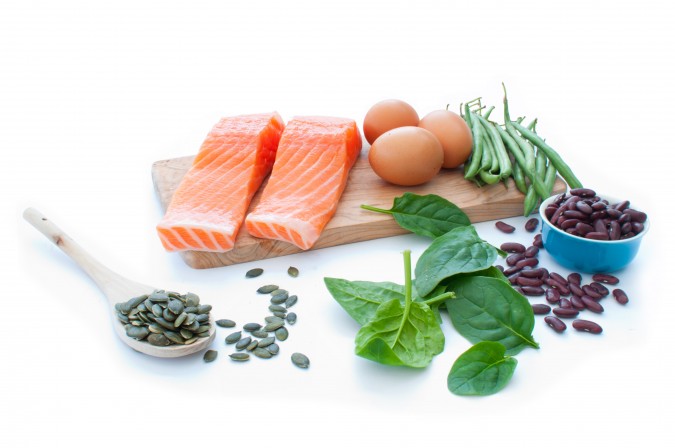
In my years as a pediatric dietitian, I have seen many concerned parents who were worried that their babies and picky toddlers weren't getting enough protein. In the past few months, however, I started receiving more questions about the long term consequences of too much protein in the diets of healthy babies and toddlers.
While we still don't have lots of good research regarding the excess protein issue, a few studies came to a similar conclusion: There seems to be a link between high dietary protein in the first 24 months of life and a higher risk of being overweight or obese later in life.
The studies highlight one crucial detail: The only type of protein associated with faster growth and risk for excess weight was dairy protein, found in milk, cheese, and yogurt. This seems to mean that excess protein from meat or vegetables is off the hook.
Why dairy? Some experts think that something in dairy affects hormonal secretion, in particular IGF-1 (insulin-like growth hormone) and insulin. But this idea is called an "early protein hypothesis" for a good reason, in that we still don't have enough evidence to pinpoint exactly how or why dairy produces this effect.
So how much protein should your baby or toddler eat? Overall, experts suggest that a maximum of 15 percent of all energy should come from protein for children from 6 to 24 months. This translates to 30 to 45 grams per day, depending on the energy needs.
The good news is that the recommended intakes of protein established by the Institute of Medicine and followed by the American Academy of Pediatrics are well below this limit: only 11 grams per day for babies from 7 to 12 months and 13 grams per day for toddlers. As you can see, your little one probably doesn't need as much protein as you thought.
The trick is to make sure your baby or toddler is getting enough protein, but not too much. Thankfully, it's less difficult than it might seem.
Whether you are breast-feeding or bottle feeding, for the first 6 months your baby gets all the protein he or she needs from the breast milk or formula.
When solids are introduced and babies start drinking less formula or breast milk, make sure to include good protein sources like meat, fish, eggs, and beans to compensate for the decrease in the intake of formula or breast milk. Bonus: High protein foods like meat and beans also provide iron and zinc, which are nutrients of concern for breastfed babies.
Limit dairy to a one-half or one serving per day for babies and two to and two-and-a-half servings per day for toddlers. One serving of dairy is 8 ounces of milk, 8 ounces of yogurt or 1.5 ounces of hard cheese. (Remember, milk is not recommended for babies under 12 months of age.)
Many parents of picky toddlers will be relieved to know that 2 cups of dairy foods per day will cover about 120 percent of their protein needs.
Here is the protein content of some common foods. Remember, babies need 11 grams a day, and toddlers 13.
Chances are, there's no need to worry about your child getting too little protein unless he is a very selective eater and forgoing all dairy foods.
Of course, if your doctor suggests that your baby or toddler needs some catch-up growth or requires more protein due to a medical condition, his or her protein needs will need to be specifically calculated. The recommendations above are created for healthy, typically developing babies and toddlers.
This is a guest post by Natalia Stasenko, MS, RD. Natalia is a pediatric dietitian and mother to three young daughters. Find her at Tribeca Nutrition and on Twitter.




